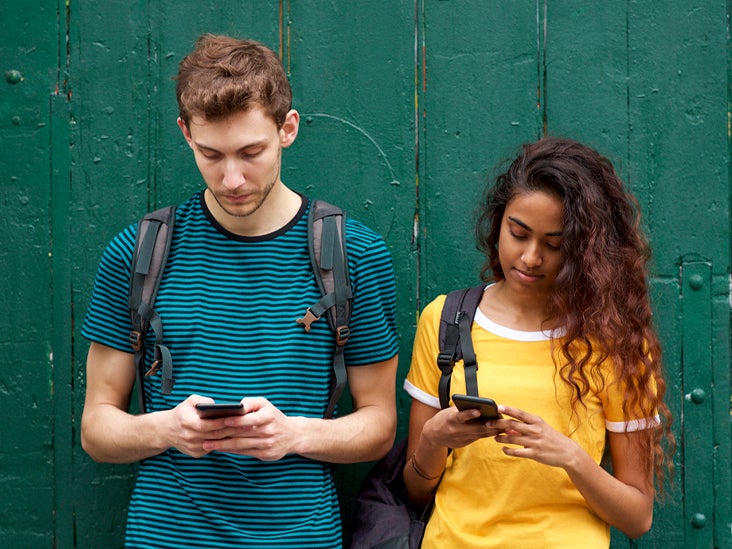After the Facebook bombs, should parents keep kids off social media?
[ad_1]
- A former Facebook employee told Congress this week that the company’s social media platforms are dangerous to children.
- According to reports, internal research has found that Instagram often causes feelings of depression and anxiety in some teens.
- Behavioral health experts say parents don’t need to ban their kids completely from using social media, but it’s worth setting rules and limits on how to engage with them. platforms.
Earlier this week, a former Facebook employee made headlines when she testified before Congress that the company’s social media platforms are dangerous to children.
Young people are often targeted by content containing toxic body image messages, and many of them are victims of cyberbullying.
On the one hand, these platforms have given children the space to connect with others with common interests and find resources for mental health.
According to news reports, a survey conducted by Facebook found that around 13.5% of teenage girls said the platform made suicidal thoughts worse and 17% said it contributed to an eating disorder. .
Other research published in 2020 found that social media can have both positive and negative effects on children.
Experts say there is also a well-established link between social media and cyberbullying, depression, anxiety and suicide among young people.
For parents trying to decide how to protect their kids, experts say they don’t need to ban their kids completely from using social media, but it’s worth setting rules and limits on how to engage with platforms.
Parents should regularly check in with their children about their social media experiences and watch for any changes in their mood, sleep, or eating habits.
Jessica Castonguay, DO, MPH, an adolescent medicine specialist and medical director of the eating disorders program at Akron Children’s Hospital, said concerns about body shape and size are common among adolescents and usually start during puberty – a time when many children join social media.
“The added stimulus of frequent images of ‘ideal’ body shape can lead to increased body image issues in tweens and teens,†Castonguay said.
While social media has its benefits, repeated exposure to harmful content on platforms can create a feeling of inadequacy and lead to anxiety and depression.
“People with specific temperaments or psychiatric disorders may be more likely to experience the negative effects of social media exposure, regardless of how much time they spend doomscrolling,” said Dr Leela R. Magavi , psychiatrist and regional medical director of Community Psychiatric Care Centers and MindPath.
While some kids may tolerate longer social media time, some kids are negatively affected in as little as 5 minutes, Magavi explained.
According to Dr. Jennifer Weber, director of behavioral health at PM Pediatrics Behavioral Health, it’s unrealistic to ban your kids from using social media altogether.
“It’s not even in their best interests, as the world demands knowledge of these social and professional communication platforms as well as full engagement in current events,†Weber said.
But their use can be regulated and children can learn to use social media responsibly, she said.
“It’s important to individualize the timelines based on each child’s story,†Magavi said.
For example:
- Set rules and limits on how your kids should use social media. Castonguay suggested avoiding screens during dinner time and 1 hour before bedtime.
- You can also download an app on your children’s devices that sets limits on social media usage per day. The American Academy of Pediatrics does not recommend more than 2 hours of screen time per day.
- Limit social media use to waking hours only, which helps minimize the time your kids spend on social media unsupervised.
- Have a central location where all phones can charge at night.
Weber advised parents to practice these rules themselves, so that children can learn from example.
Let your kids know about their experiences on social media.
“Ask them what platforms they spend the most time on and make it clear that you’re open to them sending you things they find interesting or entertaining,†Weber said.
Encourage your children to seek out reliable sources of information and avoid accounts that promote unhealthy advice or extreme body standards, Castonguay advised.
“Model a healthy self-image. Encourage acceptance of different body types, â€Castonguay said.
Watch for changes in mood, withdrawal from activities they enjoy, and changes in their sleeping or eating habits. If the changes become drastic or start to impact their quality of life, see a doctor.
A former Facebook employee told Congress this week that the company’s social media platforms are dangerous to children, often leading to feelings of depression and anxiety.
Behavioral health experts say parents don’t need to completely ban their kids from using social media, but it’s worth setting rules and limits on how to engage with them. platforms.
Parents should regularly check in with their children about their social media experiences and watch for any changes in their mood, sleep, or eating habits.
[ad_2]

